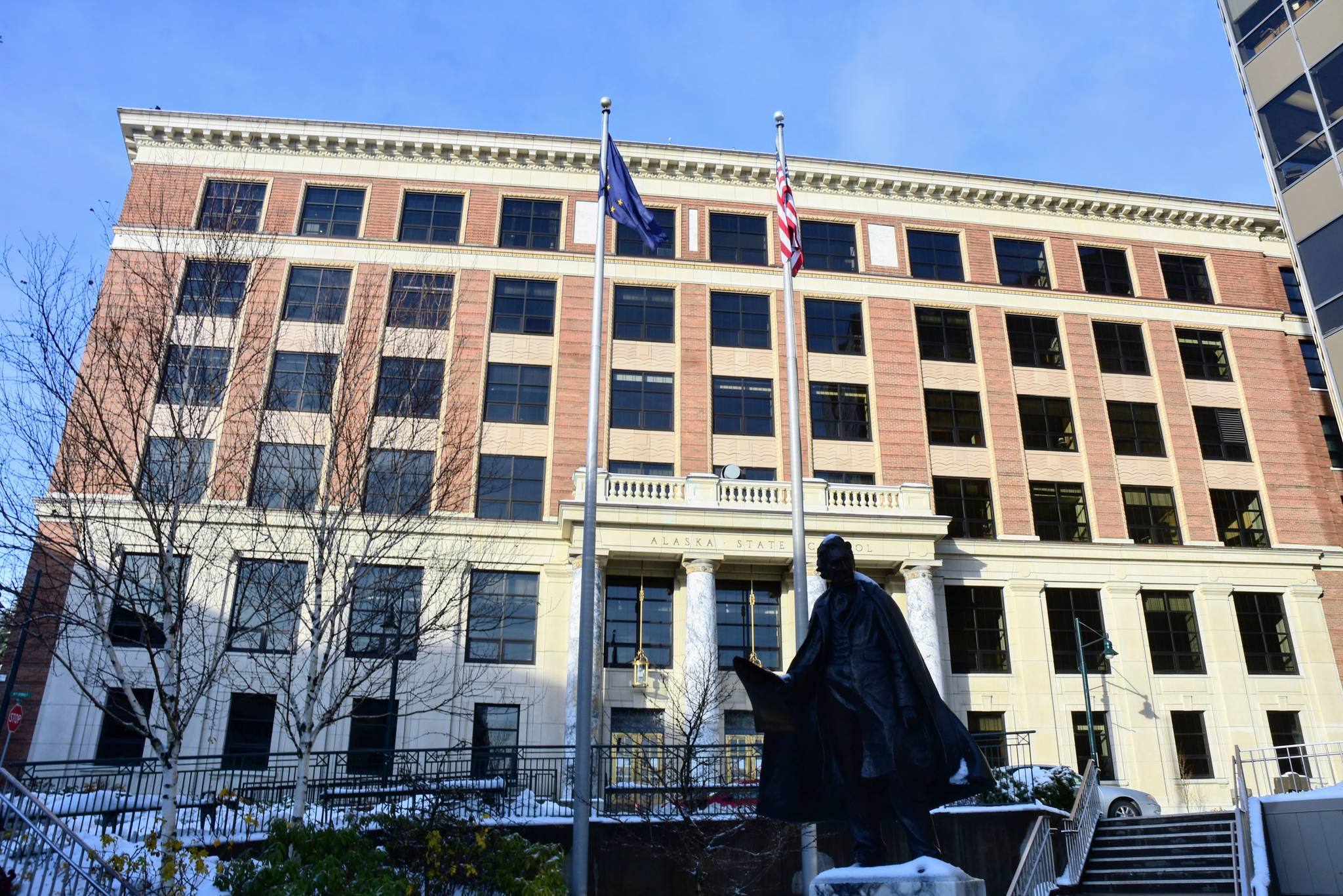With many reductions in the governor’s proposed budget still to be determined, Juneau’s lawmakers have some questions about the plan for the state’s finances.
Gov. Mike Dunleavy released his proposed budget Friday which included a 5% spending reduction, more than $300 million in potential infrastructure bonds and more than $5,000 in Permanent Fund Dividends. The governor’s plan relies on a $6.3 billion draw from the fund’s Earning’s Reserve Account, above the 5% of market value allowed by a 2018 law.
Additionally, the governor proposed three constitutional amendments to be put to a direct vote which he said would bring closure to longstanding political battles over the budget; a spending cap; set PFD formula and a direct vote for all new taxes.
Juneau lawmakers, all Democrats, reacted tepidly to the budget, expressing cautious optimism about infrastructure bonds while questioning the remaining provisions in the governor’s proposal.
“I think it’s a patchwork of short-term ideas. I’m very concerned about overdrawing the Permanent Fund,” said state Sen. Jesse Kiehl, Juneau’s only Senator whose district includes Haines and Skagway. “The Legislature will have a lot of work to do to turn this into something that takes care of Alaska’s future.”
State Rep. Sara Hannan told the Empire in an interview Monday she liked the idea of issuing bonds, but the governor hadn’t specified exactly which projects would be completed if the bonds were approved by voters. Hannan’s district also covers Haines and Skagway.
“There’s a dollar amount but not what projects are going to be in there,” she said. “Are we talking about annual road maintenance or (Alaska Marine Highway System) vessel repair?”
[Dunleavy proposes budget for ‘unprecedented’ times]
Juneau’s other House member, state Rep. Andi Story said she was pleased with the bond proposal because she had advocated for similar legislation in the past.
“We have a lot of needs to be taken care of,” she said Monday. “There are some areas we need targeted investments.”
The projects funded through the proposed bonds would ultimately be decided by the Legislature, but incoming lawmakers have yet to select new leadership and the House of Representatives appears closely divided.
Several Republicans who caucused with Democrats and independents to form a coalition majority lost their primaries. The incoming Legislature is made up of 21 Republicans, 16 Democrats and 3 independents, two of whom caucused with Democrats in the last Legislature and a third who has said he’ll vote in the interest of rural Alaska. At least one Republican, state Rep. Louise Stutes, R-Kodiak, has said she will again caucus with the majority coalition.
Lawmakers have been previously unwilling to speculate about the potential makeup of the new Legislature, but even once leadership is chosen, appropriation votes require two-thirds of each body. Other votes, such as overriding a governor’s veto, require a three-fourths vote.
“Folks are on the phone all the time,” Kiehl said. “The fact we’re all talking to each other is good, things are still open for discussion. People are trying to focus on doing the work rather than a party label.”
Senate minority leader Tom Begich, D-Anchorage, and Speaker of the House Bryce Edgmon, I-Dillingham, both released statements Friday expressing support for possible bonds but opposition to the governor’s proposal to draw from the ERA. In a statement, Begich said the governor’s proposal was “dangerously overspending” the ERA.
Juneau’s delegation was similarly opposed to overdrawing from the ERA.
On Oct. 27, Edgmon and outgoing-Senate President Cathy Giessel, R-Anchorage, sent the governor a letter expressing their concerns about the state’s economic circumstances and asking the governor to discuss budget plans with them. Giessel lost her primary to a Republican challenger.
Alaskans are divided on additional cuts to public services, they wrote, and achieving those cuts through the Legislature would be difficult and new sources of revenue may not be available for several years. Substantial cuts from state programs like the University of Alaska and AMHS will require reforms that may significantly impact Alaskans’ lives, they said.
“Are you planning any outreach efforts in the time remaining between now and the start of the legislative session to prepare stakeholders for the impact of major reductions such as to public education funding, health and social services, etc.,” they said in the letter.
Anything above 5% of market value would be “dangerously overdrawing” the ERA they said in the letter.
Dunleavy said his proposals are meant to get the Alaskan economy going again after much of it was forced to shut down due to the COVID-19 pandemic. In a news conference Friday introducing the budget, the governor said he wanted to directly engage the people of Alaska by putting the constitutional amendments and bonds to a vote.
But lawmakers are elected regularly to act on people’s behalf, Kiehl said, called the governor’s call for direct votes incoherent.
“It’s a strange notion that we trust the voters to elect the Legislature but not trust the legislators,” Kiehl said.
• Contact reporter Peter Segall at psegall@juneauempire.com. Follow him on Twitter at @SegallJnuEmpire.

